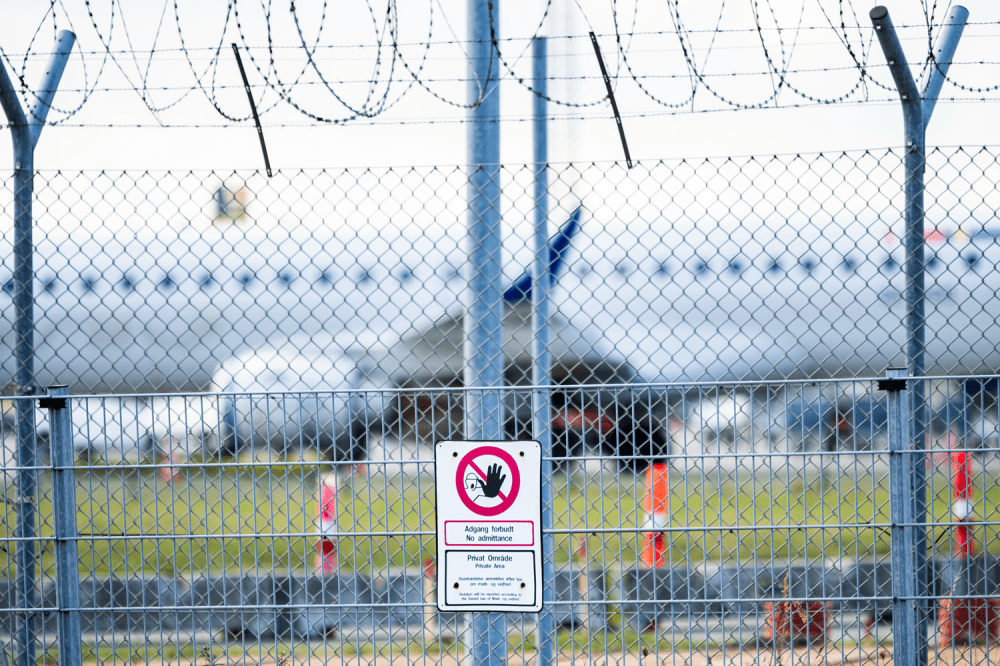Someone is interfering with aviation in the Baltic Sea region, jamming and manipulating the GPS signals that allow aircraft (and their pilots) to know where they and other planes are. Such interference is skyrocketing in other geopolitical hot spots, too. And every country should be concerned, because GPS interference affects aircraft far outside the immediate hot spots. With this insidious harm against civilian aviation proliferating, no one is safe.
These days, flying above Sweden, Finland, Poland, and the Baltic states is not what it used to be. Sure, you arrive at your destination, and you don’t notice anything unusual, but for pilots, a great deal has changed.
During the first four months of this year, Sweden alone registered nearly 123,000 incidents of GPS jamming (where GPS signals are blocked) or spoofing (where the signals are manipulated to show aircraft in false locations). In April, more than one-quarter of flights in Swedish airspace were affected by GPS interference; the share was similar in the other countries in the region. In some parts of Sweden, interference affected nearly half of all flights.
Such interference also affects ships, which—just like aircraft—use satellite positioning systems to identify their position and the position of nearby ships. In the maritime world, this system is known as AIS, the automatic identification system. To be sure, pilots and seafarers know how to navigate without satellite positioning systems (seafarers have been using sextants since the 1700s), but satellite signals provide more precise locations.
It’s not just the Baltic Sea region that’s being targeted: In recent weeks, the Strait of Hormuz, the Red Sea, the India-Pakistan border area, Myanmar, and the Black Sea have also seen constant GPS interference.
“Most GPS interference coexists with conflict, but it has also appeared in places like Hong Kong. It can happen literally anywhere,” Raphael Monstein, the co-founder of the aviation security consultancy SkAI Data Services, told me.
Tanja Harter, the president of the European Cockpit Association (the professional body of European pilots), added: “I don’t remember having seen anything like this on this magnitude before.”
The GPS interference matters because satellite navigation was introduced to make aviation as safe as possible.
“GPS has made the positioning more accurate than it was 50 years ago, which means the skies are denser and aircraft are closer together,” said Harter, who is also an Airbus 320 captain.
And now, someone is deliberately messing with it. Even though pilots know how to fly without GPS, the constant jamming is causing considerable problems.
“It adds complexity. You keep thinking, did I do everything correctly? You double check; you triple check,” Harter said.
Michael Felux, a professor of aviation at the Zurich University of Applied Sciences, said, “Having to reject nuisance alerts caused by the jamming puts a lot more workload on the pilots. Especially when you’re at the end of a long flight, it may be dark and so on, it’s an additional concern pilots don’t need. Plus, there’s the risk that the pilot will mistakenly turn off a real alert.”
The interference doesn’t only disrupt aircraft flying through affected areas, because a plane that has had to turn off functions that rely on GPS, such as the clock, often cannot reset them after leaving the affected area. That means that, for example, U.S.-bound flights that have passed through GPS trouble spots may have to approach the United States with inaccurate positions. All that, though, can be tackled.
“Pilots and aircraft are capable of recognizing GPS jamming, and airlines can create response procedures,” Harter said.
GPS spoofing is a different beast, because it tricks the aircraft into believing that it’s somewhere else, and it shows other aircraft in incorrect locations, too. Even for experienced pilots, recognizing that the aircraft is being spoofed is tricky. And if they do spot it, how can they know where, exactly, their aircraft actually is?
And, Felux pointed out, “spoofing also often affects the clock, so it shows a different date and time. That can lead to the system rejecting the plane’s time stamps because they seem incorrect.”
The spoofing can cause planes to stray into different countries’ airspaces or come dangerously close to other aircraft. In September 2023, an Embraer jet en route from Europe to Dubai suffered spoofing above Baghdad and nearly entered Iranian airspace by mistake.
Ships face the same risk. In 2019, Iran’s Islamic Revolutionary Guard Corps seized an oil tanker called the Stena Impero in the Strait of Hormuz. Iran claimed that the Swedish-owned, U.K.-flagged tanker had strayed into Iranian territorial waters, while the crew was sure that it had not. It later emerged that the Stena Impero may have fallen victim to AIS spoofing.
Over the past year or so, GPS interference has grown so dramatically that it’s becoming a curse affecting aviation everywhere. Last year, SkAI Data Services identified a staggering 310,000 flights affected by GPS spoofing alone.
“If the accuracy provided by GPS is lost, we may have to reduce the number of aircraft in the skies,” Harter said.
In other words: We’ll have fewer flying options because someone has decided to mess with satellite navigation.
Who is that someone? In the Baltic Sea region, Sweden plausibly accused Russia of being behind the attacks. Who is behind the spike in the Strait of Hormuz and other areas is less clear. The consensus is that while hobbyists can jam GPS, spoofing requires expertise that only nations possess.
And every day that passes is another day of unnecessary risks to global aviation. One of these days, a pilot worn down by constant nuisance alerts and wrong locations will make a mistake. Alternatively, the community of nations will need to limit the number of flights in particularly busy corridors. (Have a look at Flightradar24, an open-source database showing live flight tracking, and you’ll see just how crowded some of the world’s skies are.) Either way, the aviation bandits win.
But the celestial perils may even pose a paradoxical opportunity for diplomacy. The rules of the International Telecommunication Union and the International Civil Aviation Organization both ban interference with satellite navigation. Imagine, say, the United States and Cuba teaming up with countries ranging from Australia to Zimbabwe to call out and punish GPS bandits.
Keeping air crews and travelers (and, of course, ship crews) safe: That is surely one principle that most of today’s divided nations can agree on.
The post Who Is Messing With Airplane GPS Worldwide? appeared first on Foreign Policy.




